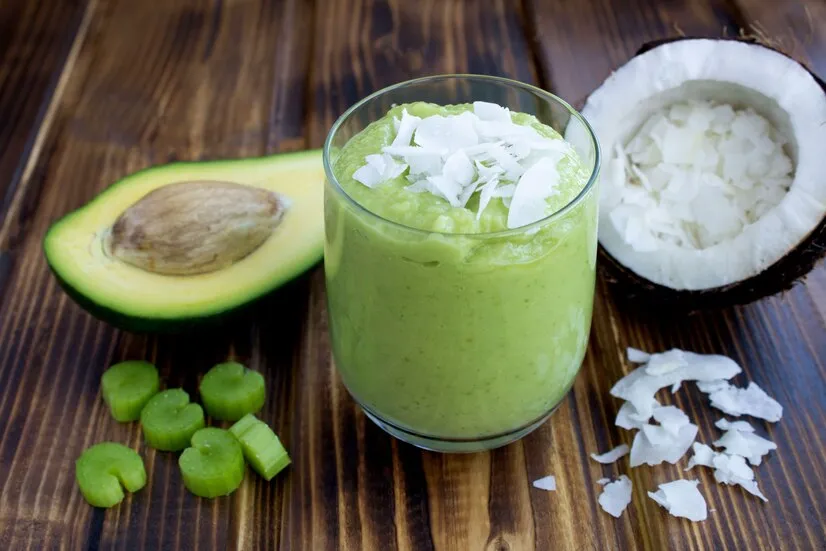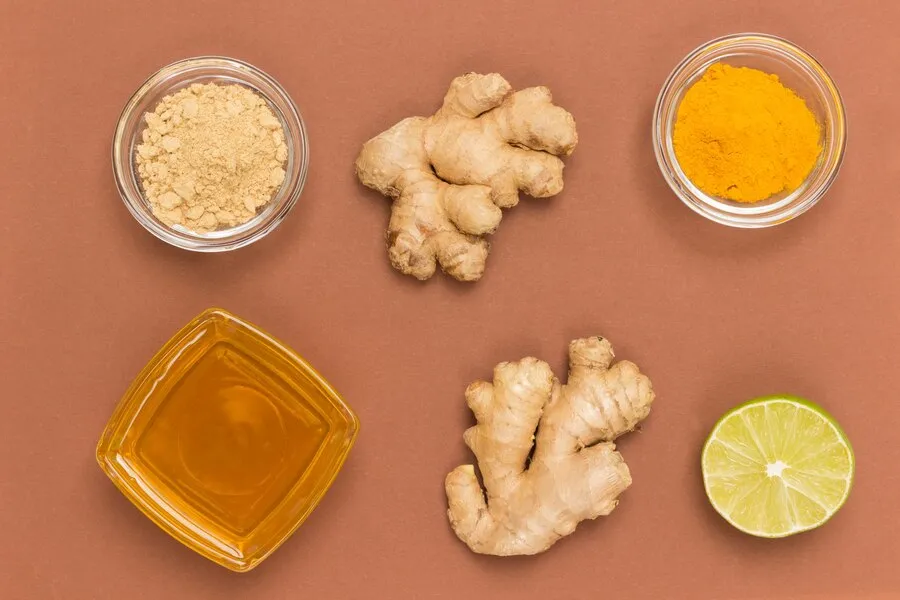Natural Probiotic Drinks To Restore Your Gut Health Balance

- The Gut-Brain Connection
- What Are Natural Probiotic Drinks?
- Yakult
- Kefir
- Kombucha
- Probiotic Yogurt Drinks
- Jamu
- Tape or Tapai
- The Science Behind Natural Probiotic Drinks
- How to Choose the Right Natural Probiotic Drink
- DIY Natural Probiotic Drinks: Brew Your Own Gut Health Potion
- Incorporating Natural Probiotic Drinks into Your Daily Routine
- Potential Side Effects and Precautions
- The Future of Natural Probiotic Drinks
- Conclusion
- FAQ: Your Burning Questions About Natural Probiotic Drinks Answered
Natural Probiotic Drinks – Are you feeling a bit off lately? Digestive issues got you down? Well, let me tell you, your gut might be trying to send you a message. And guess what? Natural probiotic drinks could be the answer you’ve been looking for! As a 25-year-old guy who’s been on a gut health journey, I’m here to spill the beans (fermented, of course) on how these magical elixirs can revolutionize your digestive game.
The Gut-Brain Connection
Before we dive into the world of probiotic drinks, let’s talk about why your gut health is such a big deal. You’ve probably heard the phrase “trust your gut,” right? Well, there’s more truth to that than you might think!
Your gut is like the command center of your body. It’s not just about digesting that delicious pizza you had last night (though that’s important too). Your gut is home to trillions of bacteria, both good and bad, that play a crucial role in your overall health. We’re talking about everything from your immune system to your mood and even your skin health!
When your gut bacteria are out of whack, it’s like a party where the troublemakers have taken over. You might experience bloating, irregular bowel movements, skin issues, and even mood swings. Not fun, right? That’s where natural probiotic drinks come in to save the day!
What Are Natural Probiotic Drinks?
Alright, let’s break it down. Natural probiotic drinks are beverages packed with live, beneficial bacteria that can help restore balance to your gut microbiome. Think of them as reinforcements for the good bacteria in your digestive system.
These drinks come in various forms, from traditional fermented beverages to modern, scientifically formulated options. The key is that they contain live cultures of beneficial bacteria, typically from strains like Lactobacillus and Bifidobacterium.
Types of Natural Probiotic Drinks
Yakult
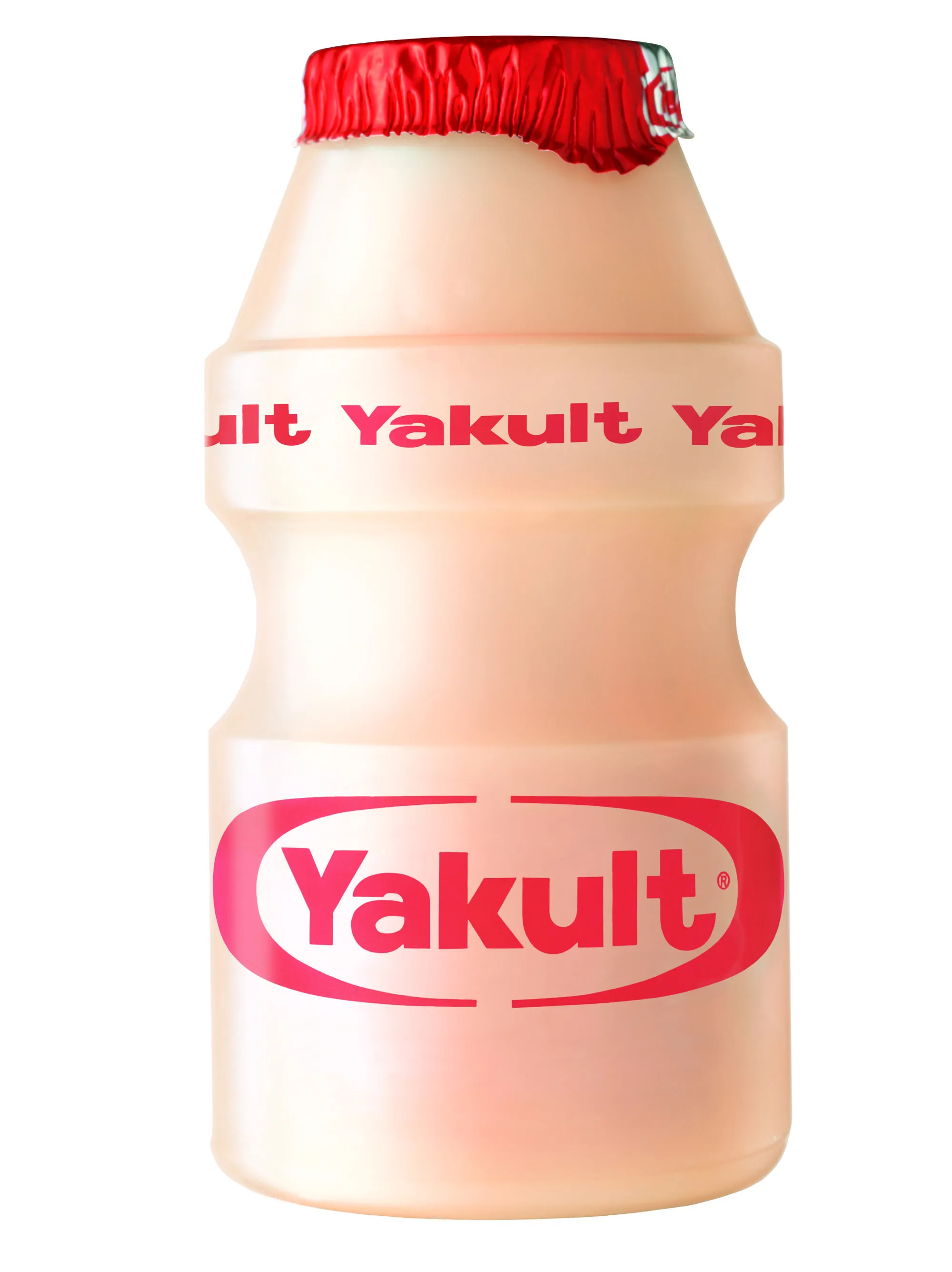
This iconic little bottle is a staple in many Southeast Asian households. Yakult is a sweetened probiotic milk beverage that’s packed with Lactobacillus casei Shirota strain. It’s easy to drink, widely available, and perfect for on-the-go consumption.
Kefir
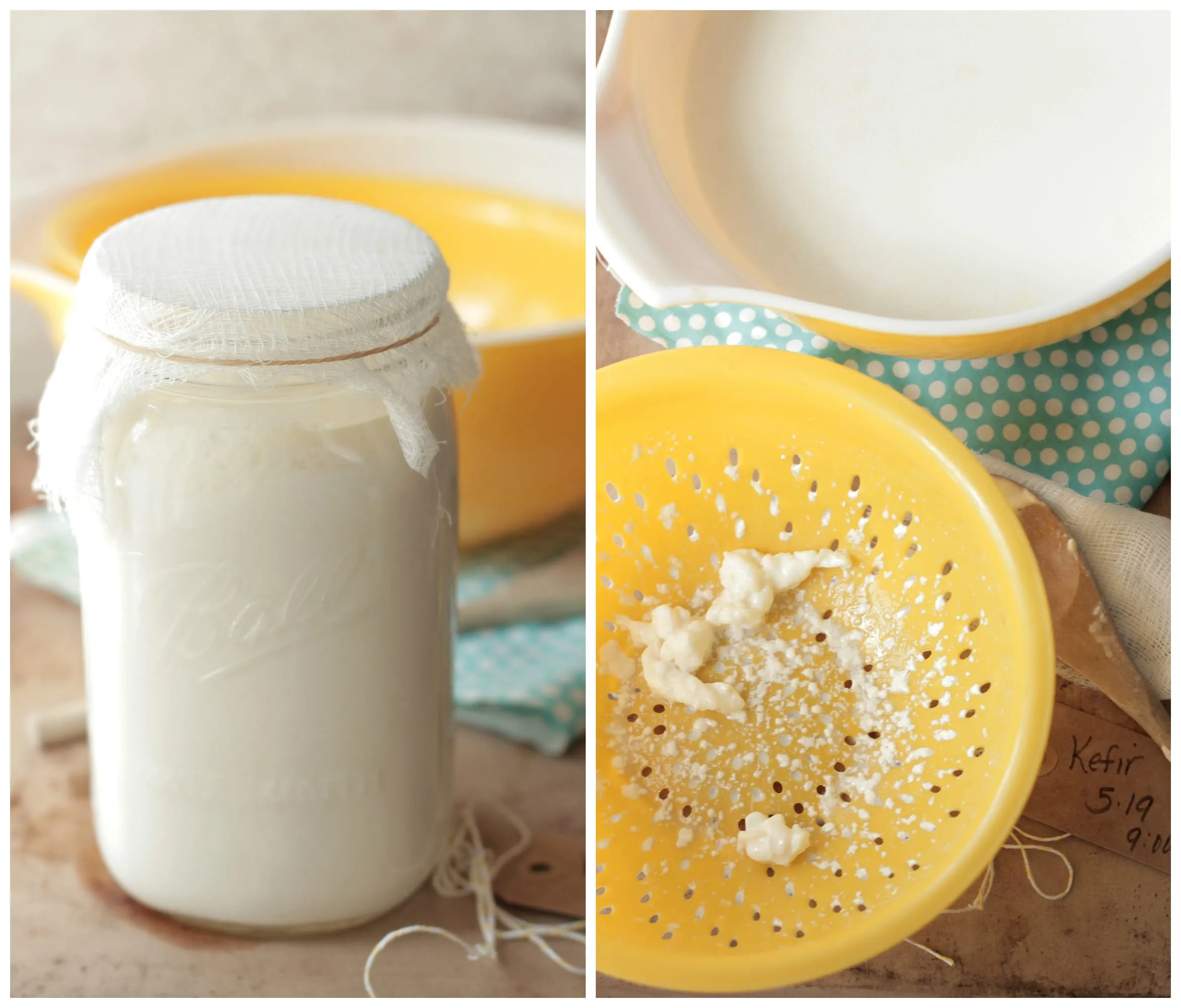
While not traditionally Southeast Asian, kefir has gained popularity in recent years. It’s a fermented milk drink that’s creamier and tangier than yogurt. You can find it in many health food stores and some supermarkets or even make it at home.
Kombucha
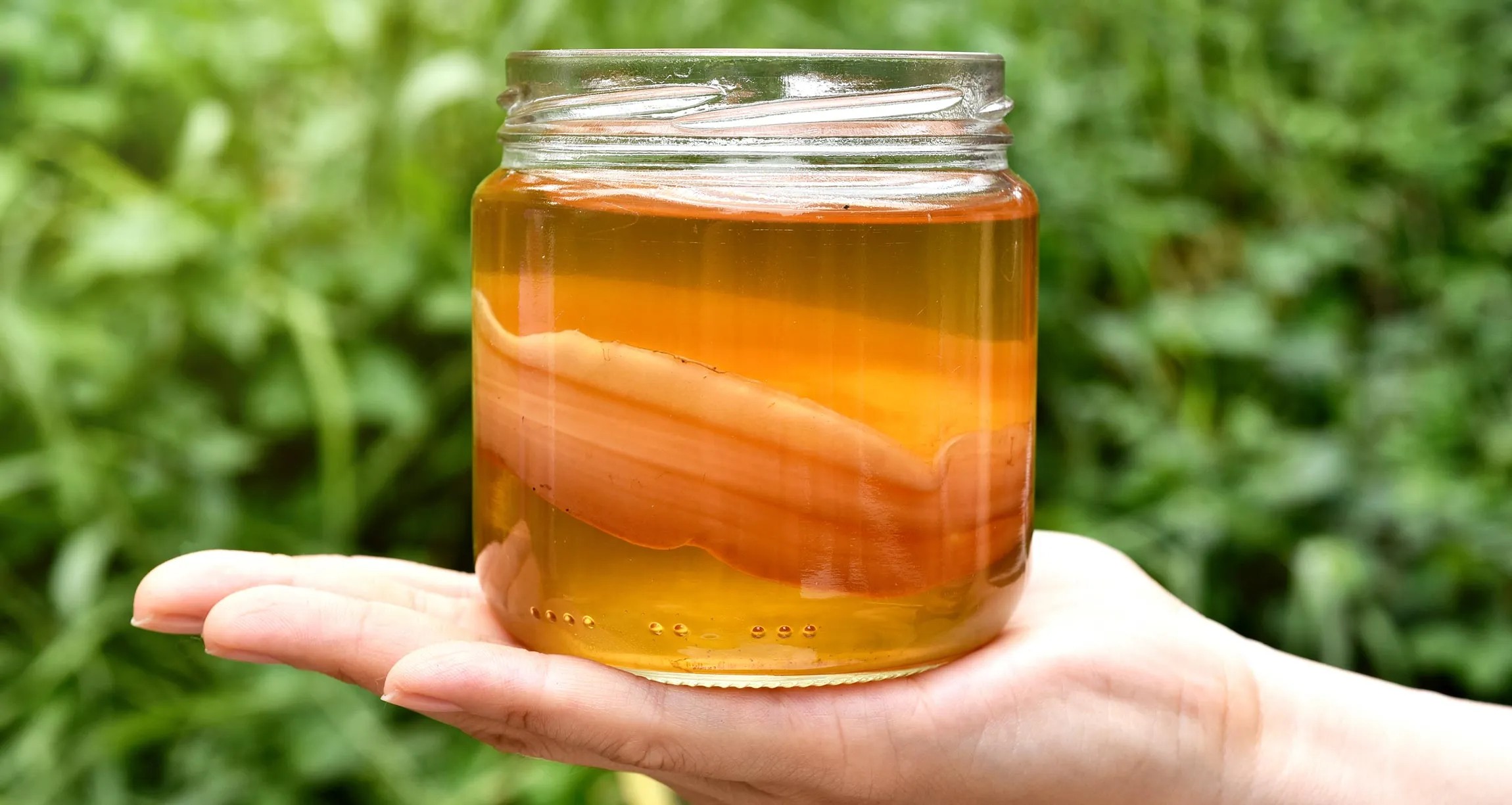
This fizzy, fermented tea has been making waves in the health scene across Southeast Asia. It’s made by fermenting sweetened tea with a symbiotic culture of bacteria and yeast (SCOBY). The result is a refreshing, slightly tart drink that’s both delicious and gut-friendly.
Probiotic Yogurt Drinks
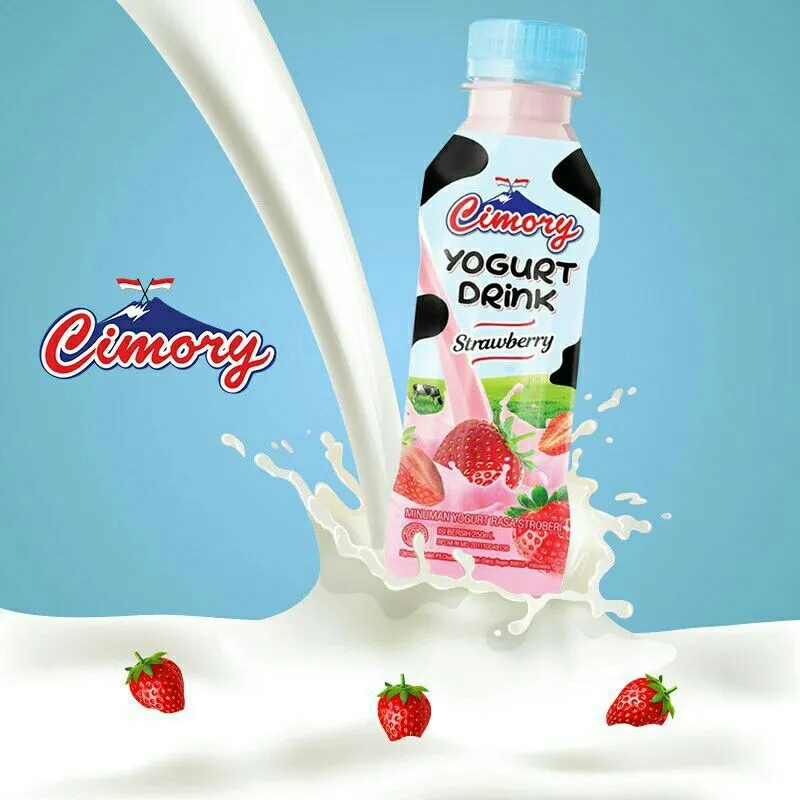
These are essentially drinkable versions of your favorite yogurt. Brands like Cimory, Heavenly Blush, and Greenfields offer these smooth, creamy, and often flavored drinks, making them an easy and tasty way to get your probiotic fix.
Jamu
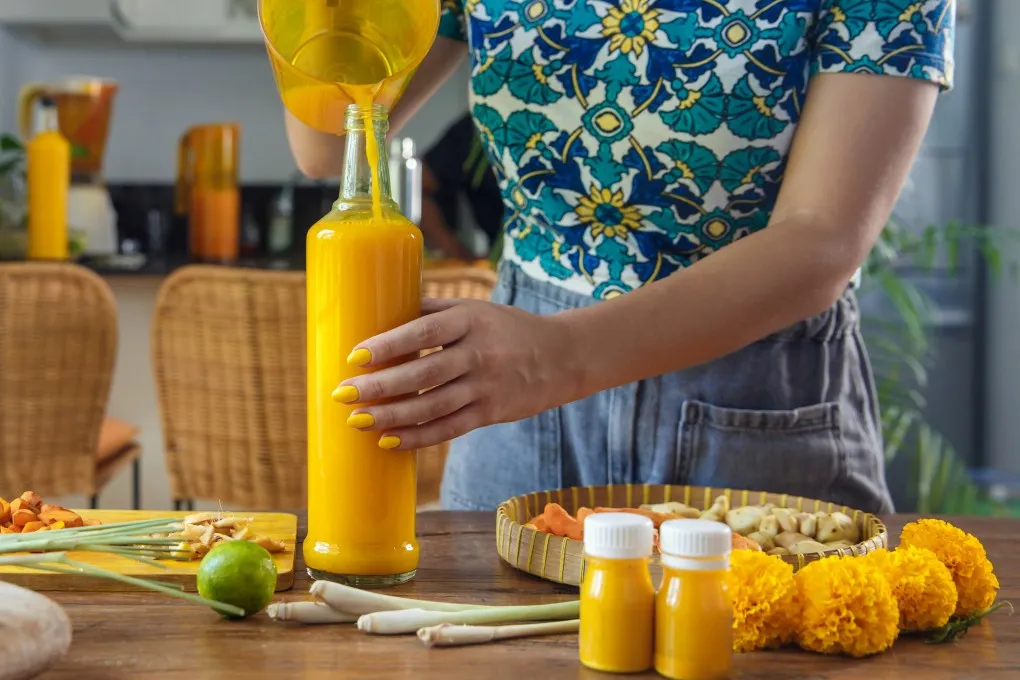
This traditional Indonesian herbal drink often includes ingredients like turmeric, ginger, and tamarind. While not all jamu contains probiotics, some varieties, especially those made with fermented ingredients, can offer probiotic benefits.
Related Article: 6 Jamu Bau Badan Wanita, Super Duper AMPUH!
Tape or Tapai
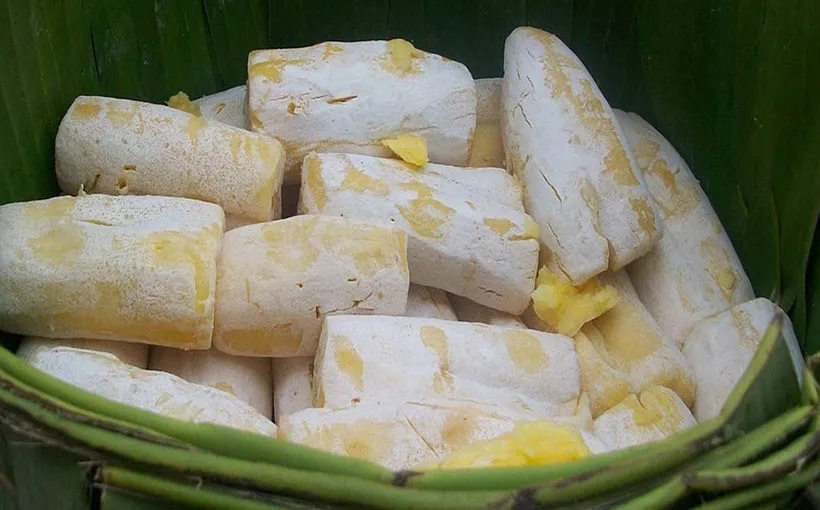
This fermented cassava or rice snack common in Indonesia and Malaysia isn’t a drink per se, but it’s often made into a beverage by blending it with water or coconut milk. The fermentation process gives it probiotic properties.
The Science Behind Natural Probiotic Drinks
Now, I know what you’re thinking. “Dude, this sounds too good to be true. What’s the catch?” Well, let me break down the science for you.
Probiotic drinks work by introducing beneficial bacteria into your gut. These good bacteria help in several ways:
- Balancing Your Gut Microbiome: They help crowd out harmful bacteria, restoring balance to your gut ecosystem.
- Enhancing Digestion: Probiotics can help break down food more efficiently, potentially reducing issues like bloating and gas.
- Boosting Immune Function: A significant portion of your immune system is located in your gut. Probiotics can help strengthen this defense system.
- Producing Beneficial Compounds: Some probiotics produce short-chain fatty acids that nourish your gut lining and may have anti-inflammatory effects.
- Supporting Nutrient Absorption: A healthy gut microbiome can improve the absorption of essential nutrients from your food.
Research has shown promising results for probiotics in managing various digestive issues, from irritable bowel syndrome (IBS) to inflammatory bowel diseases (IBD). However, it’s important to note that while the evidence is encouraging, more research is still needed to fully understand the extent of probiotic benefits.
How to Choose the Right Natural Probiotic Drink
With so many options out there, choosing the right probiotic drink can feel like navigating a maze. But don’t worry, I’ve got you covered with some tips to help you make the best choice:
- Check the CFU Count: CFU stands for Colony Forming Units, which indicates the number of viable bacteria in the product. Look for drinks with at least 1 billion CFUs per serving.
- Diversity of Strains: Different strains of probiotics have different benefits. A drink with multiple strains can offer a wider range of potential health benefits.
- Storage Requirements: Some probiotic drinks need refrigeration to keep the bacteria alive. Make sure you check the label and store your drink properly.
- Sugar Content: Watch out for added sugars, especially in flavored options. Too much sugar can counteract some of the health benefits.
- Expiration Date: Probiotics are living organisms, so freshness matters. Always check the expiration date and consume before it’s past its prime.
- Allergies and Dietary Restrictions: If you’re lactose intolerant, vegan, or have other dietary restrictions, make sure to choose a probiotic drink that fits your needs.
- Personal Taste Preferences: Let’s be real, if you don’t enjoy the taste, you’re not going to stick with it. Try different options to find one you genuinely like.
DIY Natural Probiotic Drinks: Brew Your Own Gut Health Potion
Feeling a bit adventurous? Why not try making your own probiotic drinks at home? It’s easier than you might think, and it can be a fun way to take control of your gut health. Here are a few simple recipes to get you started:
Homemade Kombucha
Ingredients:
- 4 tea bags (black, green, or a mix)
- 1 cup of sugar
- 1 SCOBY (Symbiotic Culture of Bacteria and Yeast)
- 1 cup of starter tea (from a previous batch or store-bought unflavored kombucha)
- 3 quarts of water
Instructions:
- Brew the tea in hot water and dissolve the sugar.
- Let the tea cool to room temperature.
- Add the SCOBY and starter tea to the cooled sweet tea in a large glass jar.
- Cover with a cloth and secure with a rubber band.
- Let it ferment for 7-10 days in a warm, dark place.
- Taste it after a week. When it’s to your liking, bottle it and enjoy!
Quick and Easy Kefir
Ingredients:
- 1 quart of milk (dairy or non-dairy)
- 1 tablespoon of milk kefir grains
Instructions:
- Add the kefir grains to the milk in a glass jar.
- Cover with a cloth and secure with a rubber band.
- Let it sit at room temperature for 24-48 hours, until it reaches your desired thickness and tanginess.
- Strain out the kefir grains (you can reuse these for your next batch).
- Enjoy your homemade kefir!
Remember, when making probiotic drinks at home, cleanliness is key. Make sure all your equipment is properly sanitized to avoid any unwanted bacteria crashing your fermentation party.
Incorporating Natural Probiotic Drinks into Your Daily Routine
So, you’re sold on the benefits of probiotic drinks, but how do you make them a regular part of your life? Here are some tips to help you seamlessly integrate these gut-friendly beverages into your daily routine:
- Start Your Day Right: Swap your morning coffee for a probiotic drink. It’s a great way to kickstart your digestion for the day ahead.
- Post-Workout Refresher: After hitting the gym, rehydrate with a probiotic water or a diluted kefir drink. It’s a great way to replenish fluids and support your gut health at the same time.
- Midday Pick-Me-Up: Feeling that afternoon slump? Reach for a kombucha instead of an energy drink. You’ll get a gentle caffeine boost plus all those gut-loving probiotics.
- Smoothie Booster: Add a splash of kefir or yogurt drink to your morning smoothie for an extra probiotic punch.
- Cooking Ingredient: Use probiotic drinks in your cooking. Kefir makes a great base for salad dressings or marinades.
- Evening Wind-Down: End your day with a small glass of probiotic drink. It can be part of a relaxing bedtime routine that supports your digestion overnight.
Remember, consistency is key when it comes to probiotics. Try to incorporate them into your routine daily for the best results.
Potential Side Effects and Precautions
While natural probiotic drinks are generally safe for most people, it’s important to be aware of potential side effects and take necessary precautions:
- Initial Digestive Discomfort: When you first start consuming probiotic drinks, you might experience temporary bloating, gas, or changes in bowel movements. This is usually temporary as your body adjusts.
- Allergic Reactions: If you have dairy allergies, be cautious with milk-based probiotic drinks like kefir.
- Headaches: Some people report headaches when first introducing probiotics into their diet. This is often temporary.
- Increased Thirst: The high salt content in some fermented drinks might increase thirst.
- Infection Risk: While extremely rare, there’s a slight risk of infection for people with severely compromised immune systems.
- Interaction with Medications: If you’re on any medications, especially immunosuppressants or antibiotics, consult with your healthcare provider before adding probiotic drinks to your diet.
- Sugar Content: Some commercial probiotic drinks can be high in sugar. Be mindful of this, especially if you’re watching your sugar intake.
As with any dietary change, it’s always a good idea to start slow and listen to your body. If you have any underlying health conditions or concerns, it’s best to consult with a healthcare professional before making significant changes to your diet.
The Future of Natural Probiotic Drinks
The world of probiotic drinks is constantly evolving, with new research and innovations emerging all the time. Here are some exciting trends to keep an eye on:
- Personalized Probiotics: As we learn more about the individual nature of gut microbiomes, we might see a shift towards personalized probiotic drinks tailored to your specific gut needs.
- Synbiotic Drinks: These combine probiotics with prebiotics (food for the good bacteria) in one drink, potentially offering enhanced benefits.
- Functional Probiotic Drinks: Expect to see more probiotic drinks fortified with additional health-boosting ingredients like vitamins, minerals, or adaptogens.
- Novel Probiotic Strains: Research is ongoing to identify new probiotic strains with specific health benefits, which could lead to more targeted probiotic drinks.
- Sustainable Packaging: With increasing environmental awareness, look out for probiotic drinks in more eco-friendly packaging.
- Tech-Enabled Tracking: We might see the rise of apps or devices that help you track the impact of probiotic drinks on your gut health over time.
The future of gut health is looking bright (and deliciously probiotic)!
Conclusion
There you have it, folks – the lowdown on natural probiotic drinks and how they can help restore your gut health balance. From kombucha to kefir, these fermented beverages are more than just a trendy health fad. They’re a delicious way to support your digestive health, boost your immune system, and maybe even improve your mood.
Remember, your gut is unique, so what works for one person might not work for another. Don’t be afraid to experiment with different types of probiotic drinks to find what suits you best. And as always, if you have any health concerns, it’s best to chat with a healthcare professional before making significant changes to your diet.
So, why not give your gut some love? Swap out that soda for a sparkling kombucha, or start your day with a creamy kefir smoothie. Your belly (and the trillions of beneficial bacteria living in it) will thank you!
Here’s to happy, healthy guts and the probiotic drinks that love them. Cheers!
FAQ: Your Burning Questions About Natural Probiotic Drinks Answered
- Q: How often should I drink probiotic beverages to see benefits?
A: While it can vary from person to person, consistency is key. Many experts recommend consuming probiotic drinks daily for the best results. However, start slowly and gradually increase your intake to allow your body to adjust. - Q: Can I take probiotic supplements instead of drinks?
A: Yes, probiotic supplements can be an alternative. However, natural probiotic drinks often offer additional benefits like hydration and sometimes contain beneficial enzymes and organic acids. Consult with a healthcare professional to determine what’s best for you. - Q: Are natural probiotic drinks safe for pregnant women?
A: Many probiotic drinks are safe during pregnancy and can even offer benefits. However, it’s crucial to choose pasteurized options to avoid any risk of harmful bacteria. Always consult with your healthcare provider before adding any new foods or drinks to your diet during pregnancy. - Q: Can probiotic drinks help with weight loss?
A: While probiotic drinks aren’t a magic solution for weight loss, some studies suggest that a healthy gut microbiome may play a role in weight management. Probiotic drinks can be part of a balanced diet and healthy lifestyle that supports weight management. - Q: How long do homemade probiotic drinks last?
A: The shelf life of homemade probiotic drinks can vary. Generally, homemade kombucha can last 1-3 months when refrigerated, while homemade kefir typically lasts about a week in the fridge. Always check for any signs of spoilage before consuming.

